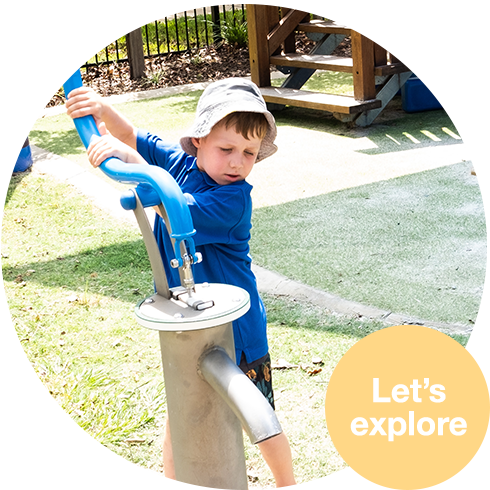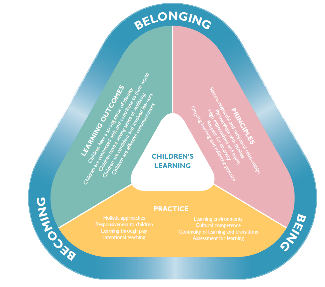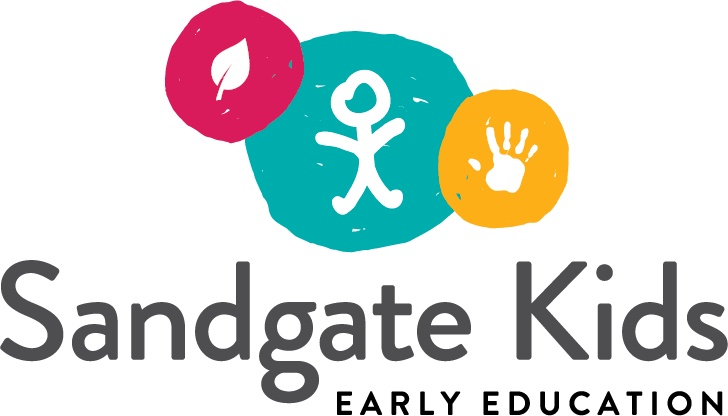National Early Years Curriculum
Our program is supported by the Early Years Learning Framework (EYLF).
Our qualified educators, working in partnership with families, plan experiences which develop children’s skills in all developmental areas, and which are part of the Early Years Learning Framework (EYLF).
The EYLF emphasises learning through play, understanding that play is an instinctive form of learning for all children. It has been designed to provide young children an education that lays a foundation for the rest of their lives, maximises their ability, and respects their family, cultural and other identities and languages.

About the EYLF
The EYLF identifies three important elements in children’s early years: Belonging, Being and Becoming.
Belonging is at the heart of life. We define who we are by our relationships with the people and environment around us. Children belong in their families and as they grow, they find other groups and communities to belong to, including the Sandgate Kids community.
Being is about recognising that children live in the here and now. Childhood is a time to just ‘be’- a time to explore the world around them, to use their imaginations, to learn to interact with others and to enjoy what every day offers.
Becoming is about growing and learning. Every experience brings learning and shapes children’s sense of identity as they grow. This is about the building of sense of self and character through positive learning experiences.
The experiences of early childhood influence the person each child becomes as an adult. It is our responsibility as educators and parents to give children a happy and positive experience with early their education.

Five learning outcomes of the EYLF
The EYLF puts children’s learning at the core and has five key Learning Outcomes:
• Children have a strong identity
• Children are well connected with and contribute to their world
• Children have a strong sense of well being
• Children are confident and involved learners
• Children are effective communicators
Eight practices of the EYLF
The EYLF spells out eight practices which we follow when designing our learning strategies.
- Adopting holistic approaches
- Being responsive to children and their needs
- Creating opportunities for learning through play
- Intentional teaching through purposeful activities which promote learning
- Creating learning environments which meet the needs of children, including indoor and outdoor play
- Recognising and valuing diversity through the cultural and social backgrounds of the children and their families
- Providing continuity in learning, building on current experiences to ease transitions
- Assessing and monitoring each child’s learning to support their development and help them achieve learning outcomes.
How it works
The daily program is based on the children’s interests. It’s designed to include spontaneous as well as structured play. This is a child-focused approach that encourages children to be active participants in their learning environment and builds on their innate joy in play.
Each day we have a variety of activities available so the children can choose the ones which suit their interests or invite their curiosity.
We monitor each child’s progress and development. Working with the child’s family, we gather the information, identify the child’s learning, and design learning opportunities to build on their progress. Their behaviour, actions and interests are the basis of assessment, so the program is always tailored to their needs.
